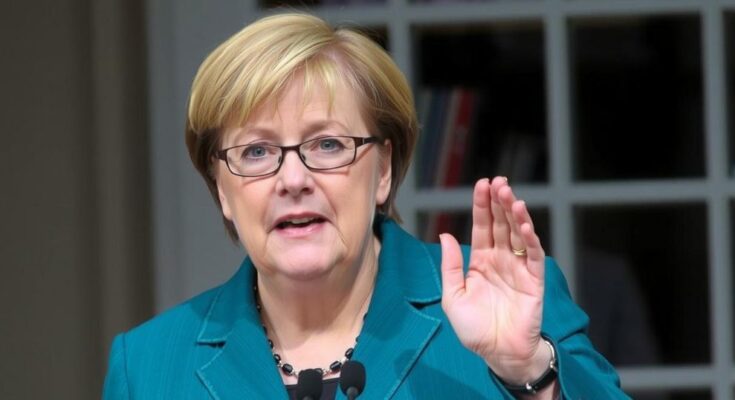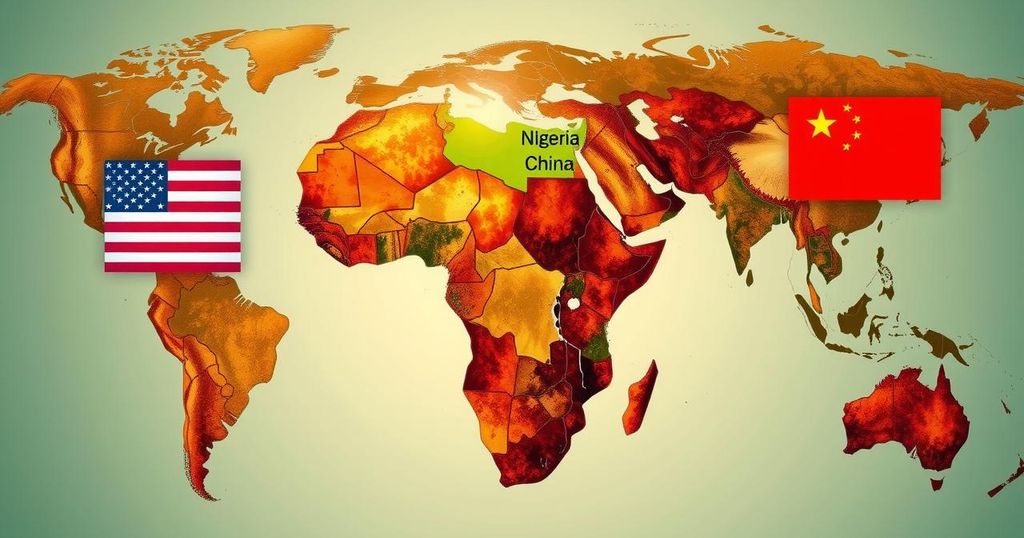German President Steinmeier has dissolved parliament and announced snap elections for February 23 following Chancellor Scholz’s loss of confidence. Scholz will serve as caretaker chancellor amid political instability from a recent attack at a Christmas market, linked to far-right sentiments. Steinmeier urges fair elections free from hate and outside influence, as polls show conservative challenger Friedrich Merz ahead of the Social Democrats.
German President Frank-Walter Steinmeier has officially dissolved the Bundestag, the German parliament, and announced that elections will be held on February 23, following the recent collapse of Chancellor Olaf Scholz’s government. In a speech delivered at Bellevue Palace in Berlin, President Steinmeier emphasized the necessity for a stable and action-oriented government, capable of navigating the challenges currently faced by the nation.
Chancellor Olaf Scholz, representing the Social Democrats, is set to continue in a caretaker role due to his government’s loss of parliamentary support following the withdrawal of the Free Democrats led by Finance Minister Christian Lindner. This political turmoil occurs amidst heightened concerns related to security after a recent car-ramming attack at a Christmas market, sparking discussions on immigration and societal safety, particularly linked to the perpetrator’s affiliation with the far-right Alternative for Germany (AfD) party.
In his address, President Steinmeier expressed his hope for an election campaign characterized by fairness and transparency, cautioning against the influence of external factors, specifically referencing the potential impact of social media platforms. He also warned that “Hatred and violence must have no place in this election campaign, nor denigration or intimidation … all this is poison for democracy”. The president underscored the pressing nature of the upcoming political debates, highlighting economic instability and international conflicts, as well as climate change.
The political landscape remains fractured, with conservative challenger Friedrich Merz gaining traction in the polls, potentially threatening Scholz’s Social Democrats’ position. The support for the AfD, while disallowed from forming partnerships by mainstream parties, complicates coalition-building and governance, as its presence in the polls poses significant challenges for the formation of a stable government.
In summary, President Steinmeier’s decisive actions reflect Germany’s urgent need for political stability and effective governance in the face of significant internal and external challenges. The upcoming elections will not only determine the next leadership but also the direction of crucial policies regarding security, immigration, and economic recovery, as society engages with the realities of a changing European landscape.
The political climate in Germany has recently become tense following a vote of no confidence against Chancellor Olaf Scholz, resulting in the dissolution of the Bundestag. This crisis follows the exit of the Free Democrats from Scholz’s coalition, which had already been under strain. The upcoming elections are critical as they coincide with societal debates incited by recent security incidents and a rising populist presence in politics, particularly with the AfD’s growing support.
In conclusion, the dissolution of the German parliament signifies a pivotal moment in the nation’s political journey, as it seeks a new leadership amid various pressing challenges. The upcoming elections will play a crucial role in addressing the issues of governance, public safety, and economic stability while needing to navigate the complexities introduced by rising populism and party dynamics. President Steinmeier’s emphasis on a clear and democratic election process will be vital for restoring public confidence in the political system.
Original Source: www.aljazeera.com




